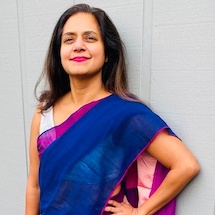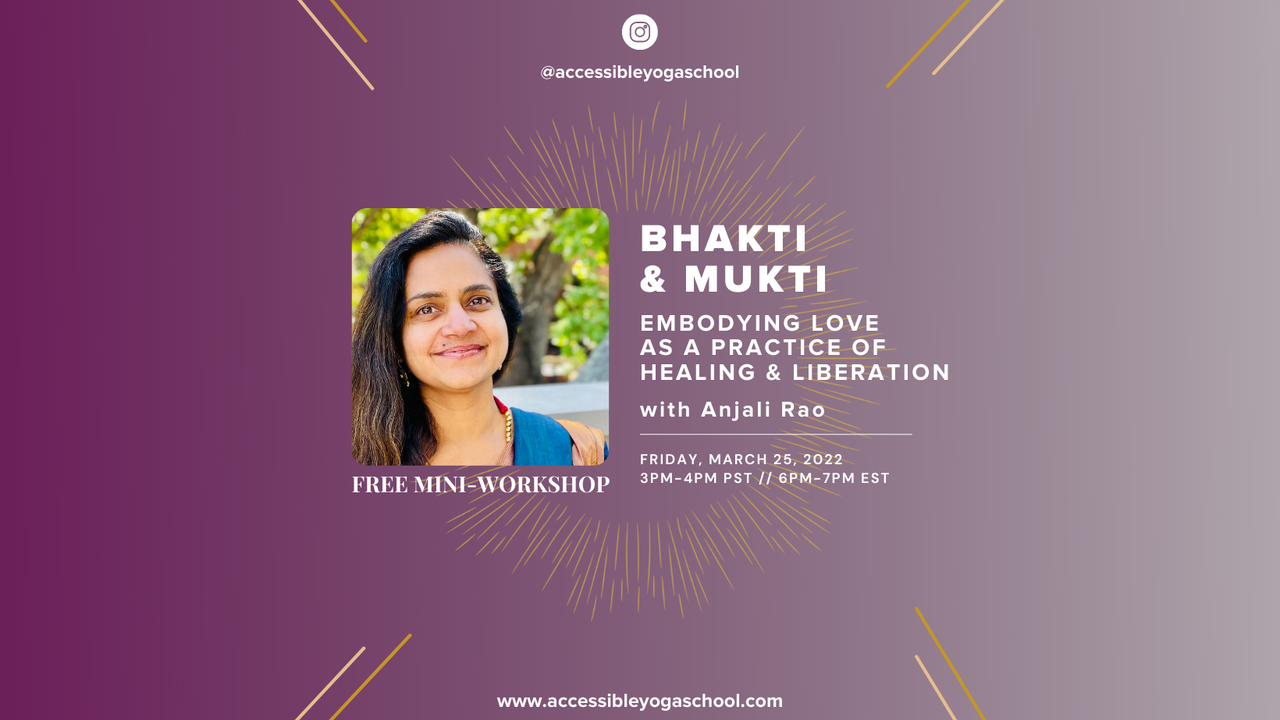Defining Yoga: Agency, Liberation & the Wisdom of Interconnectedness

by Anjali Rao
Yoga is samadhi, a state of union with the object of contemplation, states Vyasa. Yoga is collectedness, or samadhana, proclaims Shankara. Both of these ancient teachers are offering their commentaries on Patanjali’s Yoga Sutras, the composition of classical yoga philosophy built on the dualistic notions of purusha (spirit/eternal/immutable consciousness) and prakriti (matter/primordial manifestation). While Krishna in the Bhagavad Gita espouses the value of being engaged in the world, stating that yoga is skill and equanimity in action, Patanjali’s Yoga Sutras systematically codify how we can achieve liberation from our dukka (suffering) through citta-vritti-nirodha (focussing one’s entire mind-body-attention). The latter represents only one of the ascetic traditions in ancient India. Meanwhile we have the Tantric traditions, where there is a radical embracing of samsara, the world, and the assumption is that transcendence and sensory pleasure are not incompatible. All of the above have roots in Sanatan Dharma from the Indian subcontinent. Buddhism and Jainism, Sikhism, and Sufi lineages have their own interpretations, manifestations and philosophies of Yoga.
Yoga is thus a splendidly multi dimensional and multi layered collection of practices, encompassing various branches, cultures, and traditions. There are a few broad commonalities and themes that course through these teachings :
- That we are all deeply, viscerally, and spiritually interconnected beings infused with atman/spirit/purusha/consciousness.
- The practice of yoga is defining, discerning, and centering consciousness as a vehicle of transcendence from the phenomenal world.
In other words, the paths may vary, but there is a deep yearning within to expand our awareness, to evolve from our identification with the material realm, to release ourselves from physical-emotional-mental and spiritual suffering, to know and be in our truest essence, and to revel in our primordial nature, which is beyond the limitations of individual mind-ego and socio-cultural conditioning. Liberation (mukti or moksha) is thus the aim of yoga.
Through millennia, yoga practitioners have embodied these esoteric teachings in unique and authentic ways. Some have dedicated their lives in service to the challenges of the times. Some have shared their gifts of discernment, inquiry and logic, while others have radically connected with the divine through joyful creations of music, dance, and art, eliminating tremendous systemic obstacles of caste and gender in their path. While some of these thought leaders and change makers have caused seismic shifts in their spheres of influence and disrupted prevailing systems of oppression such as imperialism and patriarchy, folks who are known to this day, others have been erased or are lesser known due to the cooption and appropriation of yoga by capitalism and colonization. These are our yoga ancestors.
Each of them have forged their own paths, leveraged personal agency, re-imagined their circumstances, and shed light on how one can overcome suffering, thus transforming their own life and creating ripples of change around them, indelibly impacting the collective. We can learn much by listening to their stories, their triumphs and tribulations.
We are living through overwhelmingly challenging times. Systemic and institutional inequities abound along with wars, a global pandemic, racial injustice, trans lives endangered, religious fundamentalism, and a climate crisis that seems insurmountable. Many of us who practice, teach, and study yoga seek to make a difference, and to have an impact on the community in skillful and sustainable ways. Our yoga practice helps cultivate clarity of thought and perception into our own internal lives, invite harmony in the ways in which we commune with the Earth, discern our positionality within systems regarding access or distance from power and privilege, and also learn from the triumphs and travails of the past.
Yoga unites the perceived polarities of inner psycho-spiritual work with the outer work of being agents of social and political change. The gift of yoga is in the agency it offers each of us in our quest for liberation, the transformation that occurs when we practice yoga on and off the mats. When we look toward the philosophical and spiritual wisdom, we can access insight into the functioning of our mind, our emotions and our spirit. When we practice svadhyaya (self study), we may begin to unravel why we do the things we do. When we practice vichara (inquiry), we may begin to be curious about our conditioning and the samskaras. When we practice viveka (discernment), we may look deeply into our positionality and know where we land in the world around us, our proximity or distance to power and privilege.
We can heal the rupture in our relationships by leaning into the wisdom of interconnectedness. We can hold each other accountable for perpetuating harm and co-create spaces of equity and inclusion. We can gain clarity in intentions and honest about the impact of our actions and/or inactions. We belong to each other, each one of us as a part of the human family have a role to play. At its essence, yoga is meant to be lived and experienced, not merely taught or learned intellectually or practiced physically, but embodied in all ways.
About The Author

Anjali Rao is a yoga teacher, social justice activist, multi-cultural training specialist and a cancer survivor. She is an Indian American immigrant from Bangalore, India. Her work explores yoga philosophy and history integrating marginalized voices using story- telling, imagery and poetry. She teaches intensives integrating social justice and yoga, is a part of teacher training faculty, conducts workshops and is a speaker at wellness conferences .
Being diagnosed at 37 for early-stage Breast cancer, and recovery for multiple surgeries brought her to her first Yoga-Asana class. She knew by the end of the first class that this practice would change her life in big ways. Her passion is to share this alchemical practice and philosophy with people across ages, genders and abilities.
Anjali serves on the Board for Accessible Yoga, an international non-profit and grassroots organization dedicated to sharing the teachings of Yoga with everyone. She also serves on the Board of HERS Breast Cancer Foundation, a non-profit that helps survivors and those going through treatment regardless of financial status.

Interested in learning more?
Join Anjali for her upcoming FREE mini-workshop, Bhakti & Mukti: Embodying Love as a Practice of Healing & Liberation. In this virtual offering, Anjali will explore:
- Bhakti Yoga as taught by Sri Krishna in the Bhagavad Gita
- Historical significance in important social change movements
- Decolonization and Bhakti
- Inspiration for integrating Bhakti in your personal practice honoring diverse cultural and religious lineages
- and more!
She'll also discuss the curriculum for her upcoming course, Yoga & Activism: A Blueprint for Collective Transformation, which begins April 8, 2022. And she'll give away one free spot in the training!
Friday, March 25, 2022
3-4pm Pacific (Los Angeles)
6-7pm Eastern (New York)
Recordings will be available for those who register but are unable to attend live!

